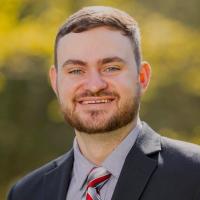Abel Prize winner Michel Talagrand reflects fondly on time at Ohio State, continues to adapt as a mathematician

Higher education was not always in Michel Talagrand's plans. However, the newest Abel Prize winner reflects fondly on his time at The Ohio State University, where he spent more than two decades as a faculty member in the Department of Mathematics.
Talagrand was awarded the 2024 Abel Prize in Mathematics for his “groundbreaking contributions to probability theory and functional analysis, with outstanding applications in mathematical physics and statistics.” The Abel Prize has often been described as the “Nobel Prize of mathematics.”
After receiving the award, “I logged onto the Abel Prize website three times a day to check if they changed their mind. Now, I feel a little bit better. I check only once a week,” Talagrand joked. “The idea that I could get (the Abel Prize) never crossed my mind. I can testify I was so surprised. I was lucky to study things which became more important later than they were at the time.”
A native of Southern France, Talagrand admitted he never saw himself living in the United States. However, after meeting his future wife Wansoo Rhee on a trip to Ohio in the early 1980s, he ended up following her to Columbus where she was a professor of management science in the Fisher College of Business.
Talagrand lauded his experience at Ohio State, specifically his working environment. He said he enjoyed working each day before running on the Olentangy River Trail, which he described as “a great treasure in Columbus.”
“I was living in Worthington, very close to the trail. I would run six miles a day for almost 20 years on that trail. It’s a fantastic asset,” he said. “I took a walk on the trail when I came back to Columbus recently, and it is just as beautiful. I wish so much I had it here (in Paris).”
Following his wife’s retirement from Ohio State, they moved back to Paris where Talagrand continued his work.
Now 72, Talagrand said his work has carried him into different areas of research. He described mathematics as a job for “young men,” and added he felt in his later years he could better make contributions in his research by exploring other areas. In his late 50s, Talagrand stopped studying mathematics and focused his attention on physics.
In 2022, Talagrand published a book titled, What is a Quantum Field Theory? The book aims to help mathematicians better understand and relate to physics. He said despite the book taking nearly 10 years to write, he greatly enjoyed investing in a new area of research.
“When I was a student, I had to choose between math and physics. When you have to make a living, you cannot study both. So, I had to invest in math,” he said. “I realized that some parts of physics were very hard to learn because they were written in a different language. So, I spent 10 years writing a book on quantum field theory, which I tried to make accessible to people who know mathematical language instead of physical language. I found it a project which I think has some usefulness.”
Now, when he is not working, Talagrand enjoys traveling with his wife. He recently spent time in China, thanks in part to a connection he made through Ohio State. Dongbin Xiu, chair of the Department of Mathematics, helped set Talagrand up with a trip to Beijing where Talagrand was, as he described it, “able to do a little work and a lot of tourism.”
Whether it was running on the Olentangy River Trail, teaching calculus or traveling the world, Talagrand said he is grateful for his time at Ohio State and all the opportunities it has offered him. “A large part of my success is because I had great working conditions at Ohio State. I did my best work when I was at Ohio State,” he said.
“When you do mathematics, you believe this [thing you’re studying] exists, and you like to understand it,” he added when discussing his Abel Prize. “Otherwise, you couldn't spend all your life studying. I made myself happy [through research and work], and then I got this extra reward, which I didn't expect. What more do you want? What more could I ever want?”

